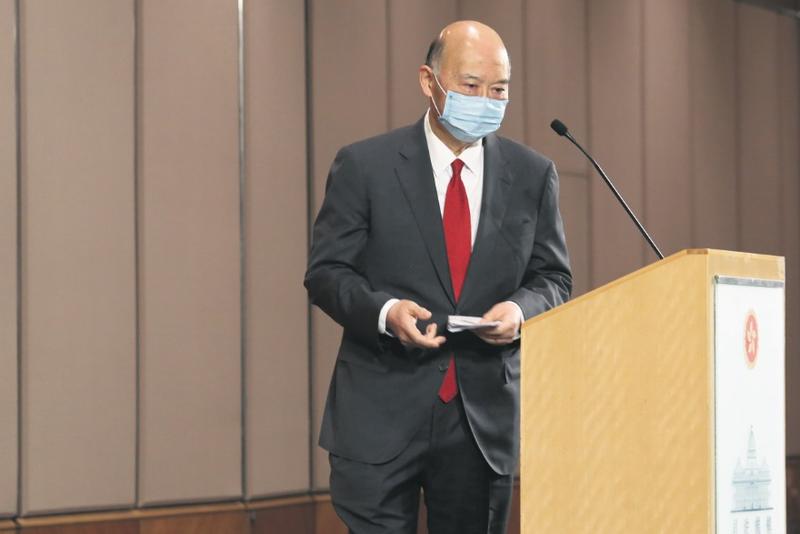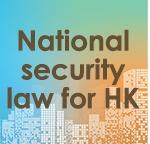 Hong Kong Chief Justice Geoffrey Ma Taoli addresses the media for the last time before his retirement on Jan 5, 2020. (PARKER ZHENG / CHINA DAILY)
Hong Kong Chief Justice Geoffrey Ma Taoli addresses the media for the last time before his retirement on Jan 5, 2020. (PARKER ZHENG / CHINA DAILY)
Hong Kong’s outgoing chief justice said on Tuesday that the rule of law in the city remains robust and the courts are a place to deal with legal issues, not political disputes.
Days before his official retirement next Monday, Geoffrey Ma Tao-li, 64, who has served as the Chief Justice of the Hong Kong Court of Final Appeal since 2010, also expressed confidence in the city’s rule of law at a news conference despite the changes in the society over the past decade.
Ma said the judiciary has, as always, dealt with cases in accordance with the Basic Law and the oaths when assuming office to uphold the Basic Law and swear allegiance to the Hong Kong Special Administrative Region. And the general public has respected the rule of law, a key cornerstone of the city, and the judicial system, he added.
In his latest ruling on Thursday, Ma and two other judges appointed to adjudicate national security law cases, granted an appeal against a bail decision by a lower court for media tycoon Jimmy Lai Chee-ying and ordered Lai’s remand until February. Lai faces one count of fraud and one count of “collusion with a foreign country or with external elements to endanger national security” under Article 29(4) of the National Security Law.
Geoffrey Ma Tao-li said the judiciary has, as always, dealt with cases in accordance with the Basic Law and the oaths when assuming office to uphold the Basic Law and swear allegiance to the HKSAR
Ma’s successor Andrew Cheung Kui-nung will hear the appeal on Feb 1.
Ma said that dealing with national security cases was as challenging as dealing with any other legal issues. The courts would adopt the same approach in adjudicating cases and convictions on legal grounds as the courts are a place to deal with legal issues, not political disputes, Ma stressed.
Ma also took note of the city’s judicial independence, saying it remains intact. He said he had never come under pressure from the Hong Kong SAR government or the central government during his 10 years as Hong Kong’s top judge.
ALSO READ: DOJ opposes ill-founded claims on HK's judicial, legal systems
In Ma’s opinion, it is important for the judiciary in Hong Kong and on the mainland to understand each other’s legal systems, which differ under the “one country, two systems” principle. That’s why Ma held regular conversations with the mainland authorities, such as meeting with members of the Supreme People’s Court two to three times a year until the suspension due to travel restric tions last year amid the pandemic.
There had been no pressure or interference during those meetings, he stressed.
Ma said the judiciary is open to reform suggestions that are made based on facts and good reasons. It is unacceptable, however, to demand reform simply to ensure that certain parties always benefit, he added.
The judiciary’s position has remained the same, he said, “If there is any room for improvement, we will pursue it. We will consider it.”
READ MORE: Legitimate concern about SAR's judicial malpractice
Hong Kong senior counsel Ronny Tong Ka-wah said there is a need for judicial reform, noting a relatively unfavorable public impression about the rule of law due to the current political divisions.
In order to promote public under standing of the court’s functioning and the judges’ considerations, Tong suggested that the court write its judgments in clear and concise lan guage, sometimes in Chinese, to make it more accessible for the pub lic and to make the court’s operation more transparent.
Meanwhile, local media and the public should actively read and understand the court’s reasoning and avoid baseless allegations of “political bias”, he added.
mollychen@mail.chinadailyhk.com



